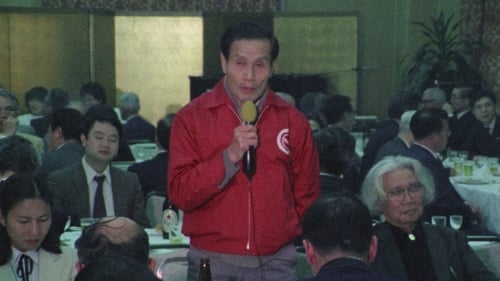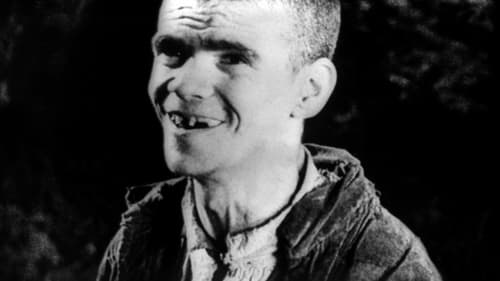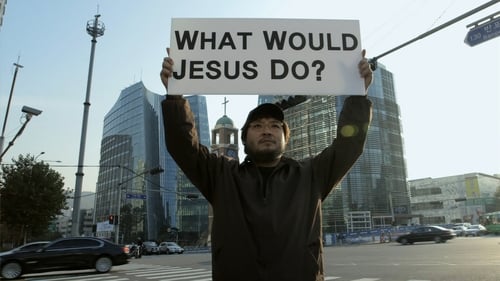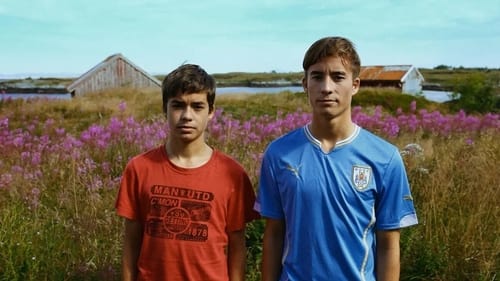Mazagão: Porta do Mar (2017)
Género : Documental
Tiempo de ejecución : 0M
Director : Gavin Andrews
Escritor : Gavin Andrews
Sinopsis

A portrait of the hacking community. In an effort to challenge preconceived notions and media-driven stereotypes Hackers Are People Too lets hackers speak for themselves and introduce their community to the public.

A documentary on the expletive's origin, why it offends some people so deeply, and what can be gained from its use.

De los cepilllos de dientes a los gadgets más sofisticados, el diseño industrial está onmipresente en la vida cotidiana. Allí apunta 'Objectified', un documental que examina los objetos y el proceso creativo de quienes los hacen. (FILMAFFINITY)

Journalist Fabian Burstein looks behind the curtains of the porn industry. Starting in Budapest he heads westwards to explore a new world on its victory march rooted deeply in Austria. On this journey he meets the heroes and leading actors of this story: Austrians Mick Blue, Renee Pornero and Thomas Janisch. Porno Unplugged follows its native porn stars to where their lives happen. From east to west...

Kenzo Okuzaki, a 62-year-old veteran of the New Guinea campaign in World War II, sets out to conduct interviews with survivors and relatives to find the truth behind atrocities committed while the Japanese garrison was surrounded, in particular the unexplained killing of two Japanese privates in his unit.

Cortometraje documental que hace un retrato de Las Hurdes (Cáceres), una de las regiones más pobres y menos desarrolladas de la España de 1932. La insalubridad, la miseria y la falta de oportunidades provocan la emigración de los jóvenes y la soledad de quienes se quedan en esta desolada región extremeña.
![Montevideo Today [unpublished fragments]](/assets/images/no-backdrop.png)
Documentary about the political and social reality of Uruguay during the period of 1968-1970. This short is incomplete and composed of a series of fragments. The complete film was taken by the military dictatorship in Uruguay (1973-1985) and is now lost.

Filmed on the 60th anniversary of the republic, this dark-humor documentary delves on the highs and lows of living in North Korea.

The life of a female weaver is thrown onto the socio-political canvas of pre-war and post-war communist Poland through the use of expressive allegorical and symbolic imagery in this imaginative take on the documentary form.

An American journalist, a British sake brewer and the president of a centenary Japanese sake brewery join together to explore the mysterious world of sake, a generic name for Japanese rice wine, actually a sort of liquor. These unique individuals, fascinated by this extraordinary beverage, investigate the spectacular world that has grown around it thorough ages.

Una historia de la Transición española contada en primera persona por los principales protagonistas: por un lado, los políticos, idealistas o meramente oportunistas, que la llevaron a buen término en las tribunas y los despachos; por otro lado, los ciudadanos que, en las calles, la apoyaron sinceramente o la combatieron con ferocidad. (Precedida por «No se os puede dejar solos»).

Black Mold Exposure explores the bizarre illnesses associated with exposure to toxic mold and the film participants' difficult task of regaining their health and lives in an atmosphere of political and social intolerance and disbelief. Black Mold Exposure is a first-ever look into the lives of those claiming to be ill from mold and the controversial and volatile climate surrounding it.

Conozca a los mormones examina la vida que tienen seis devotos miembros de La Iglesia de Jesucristo de los Santos de los Últimos Días, conocidos como mormones.

The church is the body of Christ. In Greece, the church embodied a philosophy. Then in Rome, it became an institution. Spreading throughout Europe, it became one with the culture there. Traveling to the US, the church became a business. And when it arrived in Korea, it became a conglomerate. The top five largest churches in the world are located in Korea. However, Christ has long been absent in the nation. So then, what is the church? Who is Jesus Christ? What kind of world do Christians want? If the church is indeed the body of Christ, then we must ask the questions point-blank. Where do we stand in all this? And where exactly are we headed? Korean churches—“Quo Vadis?” Korean society—“Quo Vadis?”

A film about the close relationship between two brothers. Markus (10) and Lukas (7) live in an old, yellow townhouse in the middle of Oslo. The river runs close to their home. A paradise in the heart of a big city. Here the brothers grow up with their dreams and longings for the future.

Esta película es una muestra del cine militante de los años 80. Los protagonistas son de lo más heterogéneo (desde políticos y profesionales de distintos campos hasta ciudadanos de a pie) y expresan sus opiniones acerca de los cambios acaecidos durante la Transición española. La inconveniencia de algunos testimonios y la sensación de crispación transmitida, hicieron que la película fuera “secuestrada” por la Administración, que impidió su estreno hasta noviembre de 1983.

Edward R. Murrow narrates Humphrey Jennings' short documentary about life in England during wartime.

Morgan Spurlock, Joe Morley and Heather Winters -- the same group of filmmakers that exposed the greasy truth about fast-food "supersizing" -- team with director Sara Sackner for this eye-opening documentary that looks under the hood of America's public school curriculum. Under the microscope this time is arts education and its pitiable lack of funding, as well as the vital role a teacher can play in the lives of struggling students.

For four years (1977-1981) Esaias Baitel documented a violent Parisian neo-Nazi gang. Having gained their trust, he was able to get close to them. Living among the gang members, he witnessed horrific events, and while hiding his real identity, he photographed a one-of-a-kind collection of gripping stills. Over thirty years have passed. Esaias Baitel has laid his camera down. He returns to the dark nights he spent in the City of Lights, the city where he lived a double life, going back and forth from the gang to the young family he had just started.

In the 1920s, former coal miner Harry Hoxsey claimed to have an herbal cure for cancer. Although scoffed at and ultimately banned by the medical establishment, by the 1950s, Hoxsey's formula had been used to treat thousands of patients, who testified to its efficacy. Was Hoxsey's recipe the work of a snake-oil charlatan or a legitimate treatment? Ken Ausubel directs this keen look into the forces that shape the policies of organized medicine.






![Montevideo Today [unpublished fragments]](/assets/images/no-backdrop.png)












